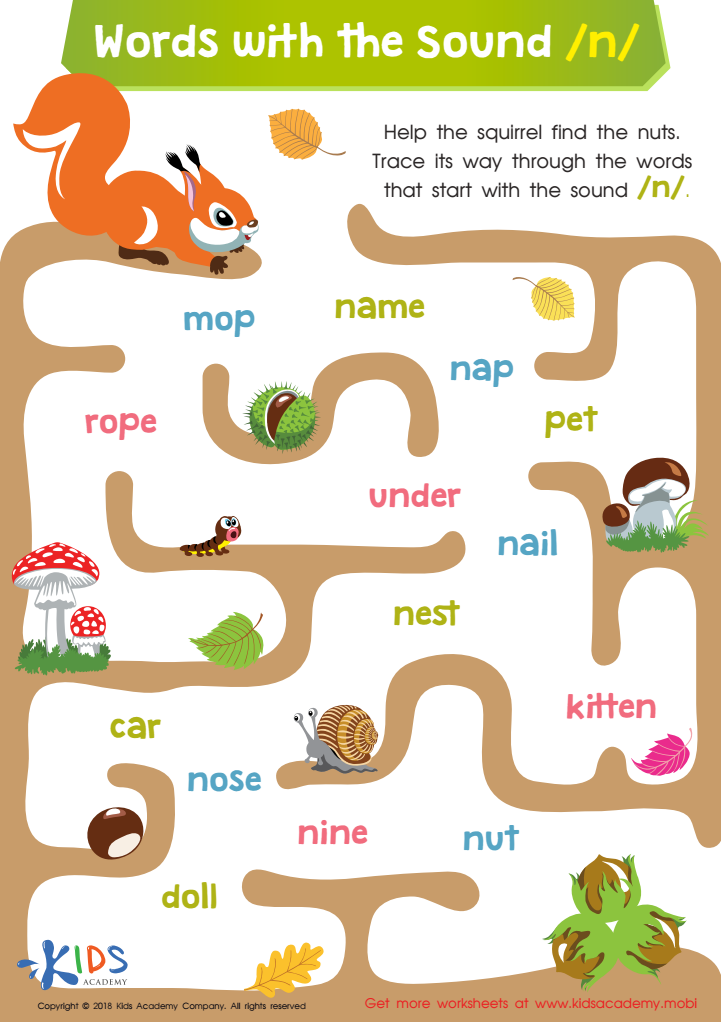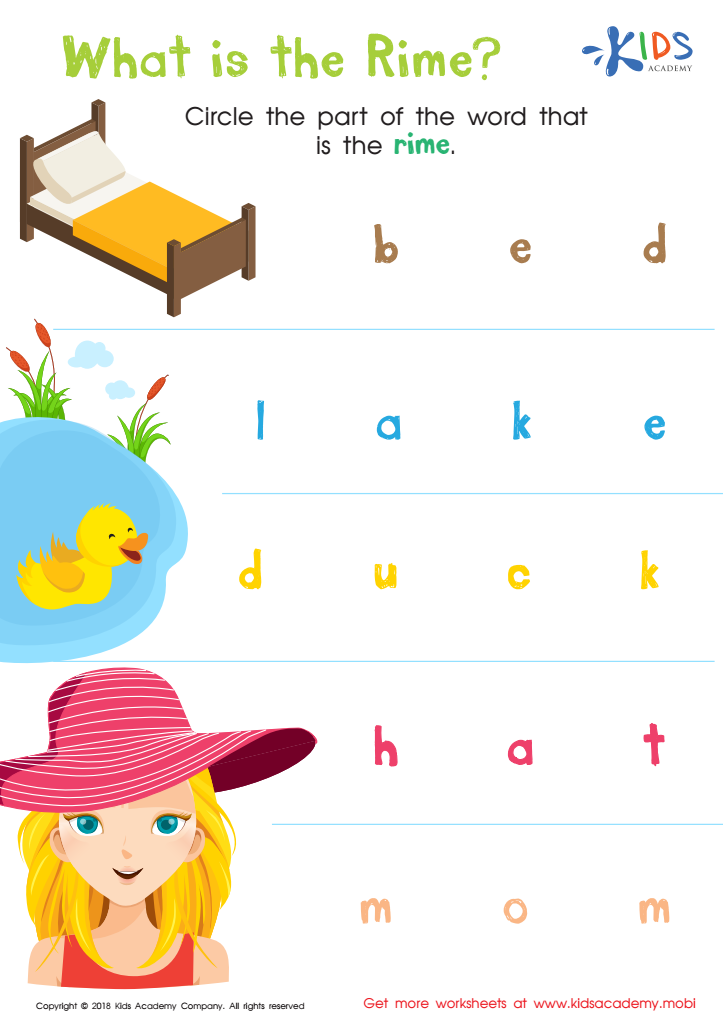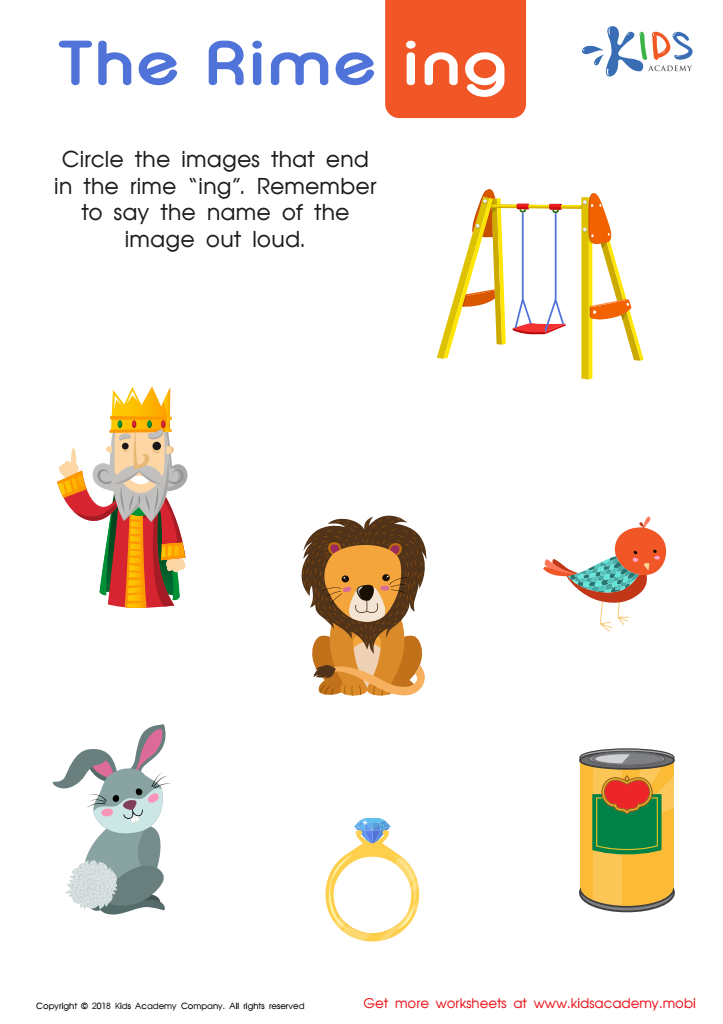Phonics recognition Extra Challenge Worksheets for 6-Year-Olds
3 filtered results
-
From - To
Unlock your child's reading potential with our Phonics Recognition Extra Challenge Worksheets for 6-Year-Olds! Specially designed for young learners, these worksheets offer an engaging and interactive approach to phonics practice. Each sheet is packed with fun, colorful activities that challenge kids while helping them recognize different sounds, blend syllables, and improve their spelling abilities. Perfect for enhancing reading skills, these exercises build a strong foundation in literacy and spark a love for learning. Boost your child’s confidence and make phonics practice enjoyable with our expertly crafted Extra Challenge Worksheets. Ideal for practice at home or in the classroom!


Words with Sound N Reading Worksheet


What Is the Rime? Worksheet


The Rime "ing" Worksheet
Phonics recognition is an essential cornerstone in developing reading skills in young children, and providing extra challenges for 6-year-olds can significantly enhance their literacy abilities. At this impressionable age, children are like sponges, absorbing new information quickly. Focusing on phonics helps them understand the relationships between letters and sounds, which is crucial for decoding new words, improving both reading fluency and comprehension. Introducing extra challenges in phonics recognition ensures that children not only grasp these basic concepts but also reinforce and build upon them. This cementing of foundational skills is paramount as it leads to advanced literacy proficiency and sets the stage for academic success across all subjects.
Furthermore, tackling such challenges can foster a growth mindset. It encourages young learners to push their boundaries and develop resilience, problem-solving skills, and cognitive flexibility. Parents and teachers who invest in additional phonics challenges contribute to a child’s enthusiasm and confidence toward reading. Engaging educational strategies, such as games, interactive activities, and creative storytelling, make this process enjoyable for children, thus stimulating an early love for reading and learning. In essence, emphasizing phonics recognition with extra challenges nurtures a robust literacy foundation that benefits children well beyond their early educational years.
 Assign to My Students
Assign to My Students




















